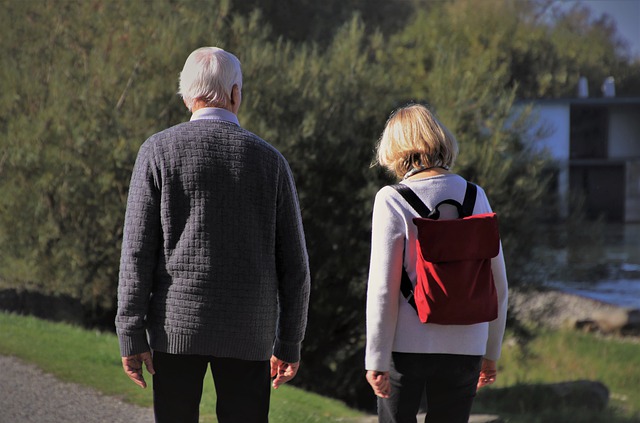The 5 Stages Of Aging
According to the Mayo Clinic there are multiple signs of aging and the signs become more and more noticeable as the years progress. Aside from the obvious physical signs of aging there are also many changes on a psychological and a standard of life level as well. (https://www.mayoclinic.org/healthy-lifestyle/healthy-aging/in-depth/aging/art-20046070).
There are none of us who know how long we have on this planet and for the ones who get to live a long lifespan they experience the stages of aging. This is not a bad thing, far from it in fact, living life is important. The longer we are here the more we can learn so aging is just a part of our ongoing journey of discovery.
1) Independence
The first stage of aging is Independence. This is the stage of life between when we become responsible for our own lives up until on average our 60s-70s. Ages can obviously vary; some people stay very independent into their 80s while others may lose independence earlier due to illness or injury.
During this phase of independence, we are able to take care of all of our own needs and are fully capable to look after ourselves. It is the phase of our lives in which all normal tasks are routine and easy for us to accomplish. Our mobility is solid, we may not be in complete perfect health, but we have control over it.
2) Interdependence
The next stage of aging is interdependence, this is a point in which people start to need assistance with certain things. According to Live in Place Designs this is the point in life where new physical or cognitive challenges arise. We may no longer be able to balance on a ladder to clear a gutter or perhaps failing eyesight may impair our ability to drive. (https://liveinplacedesigns.com/aging-in-place-lifestyle/the-5-stages-of-aging-at-home/#:~:text=However%2C%20experts%20generally%20break%20down%20aging%20in%20older,Dependency%204%20Crisis%20management%205%20End%20of%20life).
It is during the interdependent stage that people may need help to achieve certain functions of daily life. This does not mean they have lost their independence merely that they need extra assistance. This may come from younger family members or part time in-home help.
3) Dependence
As more and more health issues occur such as failing memory or serious physical limitations people head toward the dependence stage of aging. Our bodies deteriorate as we age meaning we can no longer do the things we once could.
When we reach this stage, we may need more extensive help to function and help protect us from harm. This is a stage of life when falling becomes a serious risk and hits most seniors in their late 70s. Dependency, of course, can begin sooner depending on potential health factors of advanced cognitive deterioration.
4) Crisis Management
This is a stage of aging that many reach in their late 70s and is characterized by a need for extra vigilance in protecting health. It is a phase of life in which a simple fall or illness can quickly escalate and become life threatening.
As we age our bodies weaken and no longer recover as well as they once did. Those in the crisis management phase often need to be close to medical assistance or regular health care options. This can often mean round the clock care from an in home assistant or possibly placement in a senior care facility.
5) End of Life
End of life is a phase that can come at any point during a person’s life but when associated with older individuals it is brought about by age. As our bodies shut down increasing medical issues arise until such a time as our bodies finally give out. This can happen in many ways but hopefully it comes after a long and happy life.






